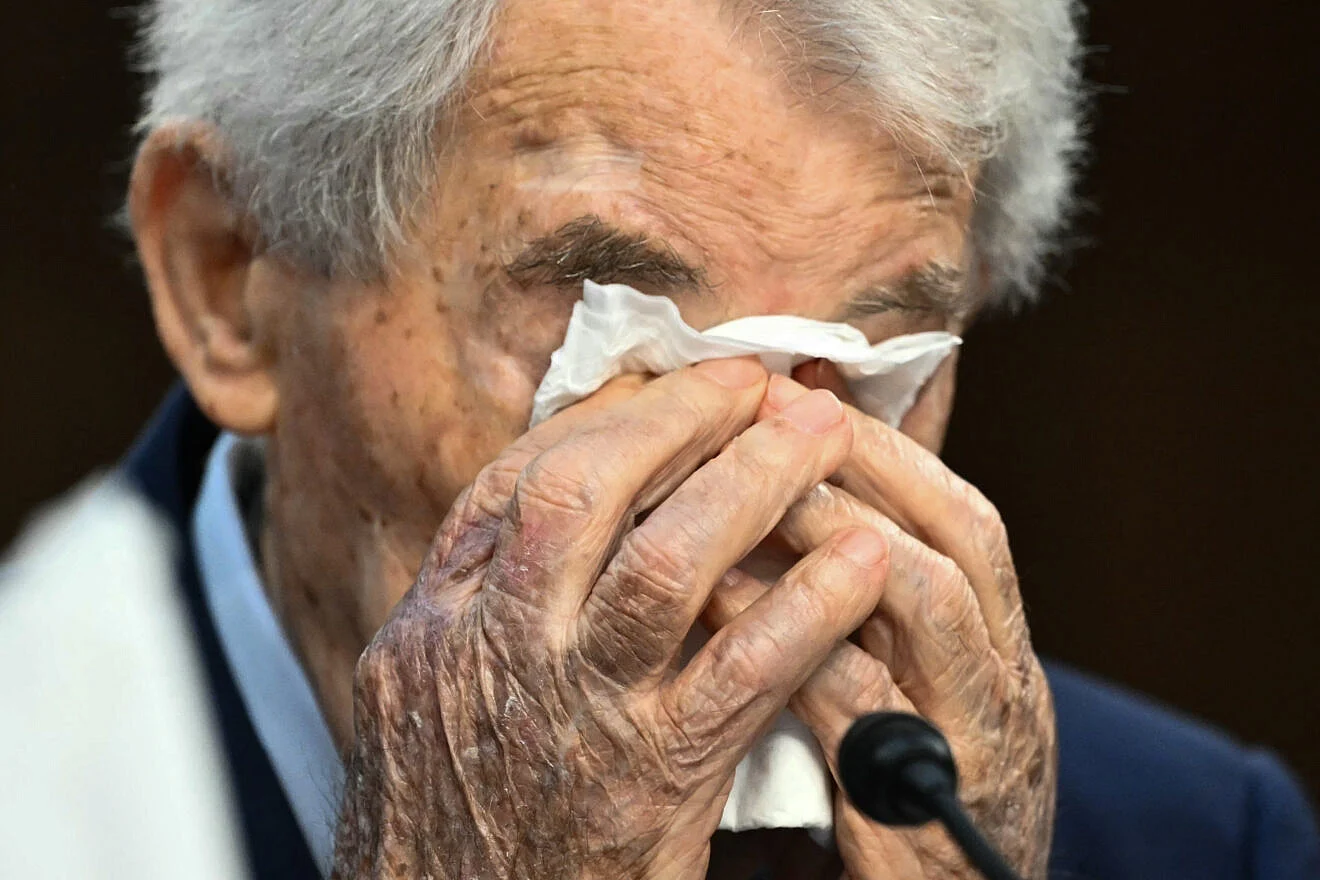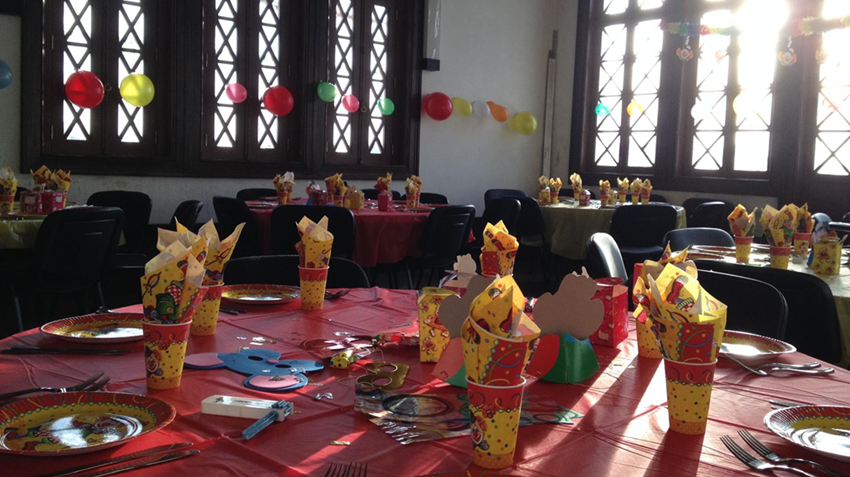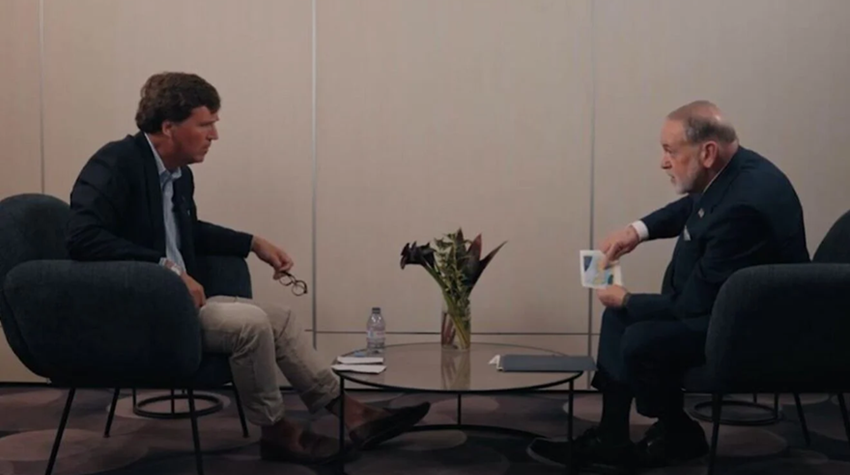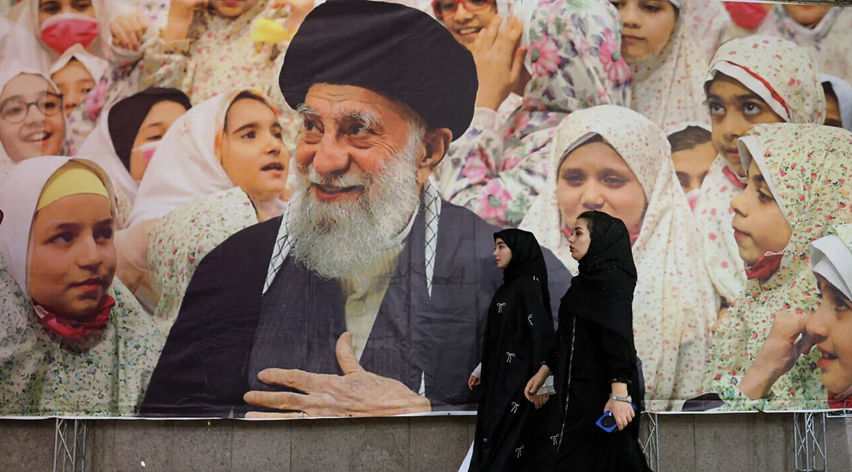David Schaecter, president of the Holocaust Survivors Foundation USA, reacts during a U.S. Senate Special Committee on Aging hearing on "addressing the rise of antisemitism and supporting older Americans," April 30, 2025. Credit: Mandel Ngan/AFP via Getty Images.
By Jonathan D. Salant
The ways that Jewish college students are treated at anti-Israel protests look and sound like the period leading up to the Holocaust, David Schaecter, president of the Holocaust Survivors Foundation USA, told the Senate Special Committee on Aging at a hearing on Wednesday.
“Protests on college campuses that intimidate and threaten Jewish students are not benign and cannot be ignored,” Schaecter, who survived Buchenwald and Auschwitz, told the Senate panel. “I remember vividly when Slovakian classmates taunted Jewish kids like me, and what’s happening today looks and feels the same.”
For the 1.6 million American Jewish seniors, including more than 30,000 Holocaust survivors, the rise in Jew-hatred is more traumatic,
“These individuals, many of whom have already endured the horrors of persecution, are now facing renewed threats that retraumatize and destabilize their lives,” Sen. Rick Scott (R-Fla.), the committee chair, said in his opening statement.
“Antisemitism is not a distant historical issue,” he added. “It is an ongoing reality that continues to rise in our society.”
According to the American Jewish Committee, more than half of American Jewish seniors (53%) worry that their loved ones will experience Jew-hatred, and 43% say they’re concerned they will be victims of antisemitism themselves.
“American Jewish seniors remember a time when Jews were often intentionally ostracized in our country,” Ted Deutch, the AJC’s chief executive and a former congressman, told the committee.
“Through their tenacity and dedication to American and Jewish values, American Jews have experienced what some have deemed a ‘golden age’ for our community,” Deutch said. “But now with antisemitism on the rise, the acceptance we have enjoyed is at risk of going away.”
Lawmakers and witnesses emphasized the need to address the rise in Jew-hatred.
“We know that people who have survived decades and decades of violence and antisemitism have experienced the worst kind of antisemitic hate and violence,” said the committee’s ranking member, Sen. Kirsten Gillibrand (D-N.Y.).
“What happened on Oct. 7 is the most egregious nightmare, the most disgusting, horrific, inhumane, barbaric attack that I’ve ever, ever heard testimony about or seen video footage of,” Gillibrand said.
Another witness, Rebecca Federman, the senior director of the intelligence desk at Community Security Initiative, ticked off several steps that Congress needed to take. The CSI was formed by UJA-Federation of New York and Jewish Community Relations Council of New York in 2019 following a series of antisemitic attacks in Pennsylvania, California, New Jersey and New York.
Federman called on Congress to enact the Antisemitism Awareness Act, which would call on the U.S. Department of Education to use the International Holocaust Remembrance Alliance (IHRA)’s working definition of Jew-hatred when investigating civil-rights complaints.
She also asked federal lawmakers to increase security grants for synagogues and other Jewish community institutions, which U.S. President Donald Trump temporarily shut off after taking office. More than half of the institutions deemed at risk have been unable to obtain grants under current levels of funding, she said.
Colleges should take new steps to protect Jewish students from harassment, including enforcing codes of conduct and banning violators from campus, but Congress needs to fund the Education Department’s Office of Civil Rights, according to Federman, as Trump tries to gut the entire cabinet agency.
Federman said her group is working with Hillel and Chabad to improve security on 25 college campuses from Boston to Washington.
“Looking at the trendlines across the 25 campuses, we assess that campuses are no longer just centers of First Amendment-protected protest,” Federman told the Senate panel. “While not all campuses have seen the same level of protest activity, harassment and intimidation of Jewish students, in some cases, campuses have become launchpads for violence and hate.”
While antisemitic incidents spiked nationally after Oct. 7, Federman said that just 40% of the detected threats serious enough to involve law enforcement came from individuals motivated by jihadi ideology. The other 60% were motivated by white supremacy, she told the panel.
The rise in antisemitism is putting a new burden on America’s elderly Jews, who learned after Oct. 7 that they had not left that hatred behind, according to Rabbi Mark Rosenberg, chaplain to several first responder units in Miami-Dade County.
“The elderly came face to face with the horrific news that perhaps the past they thought they left behind will be the future,” Rosenberg testified.
“They worry about the college campuses and what their descendants will experience,” he added. “They fear that the country that gave them unprecedented freedom of religion can be usurped by those with a sinister agenda.”
Source: JNS


































